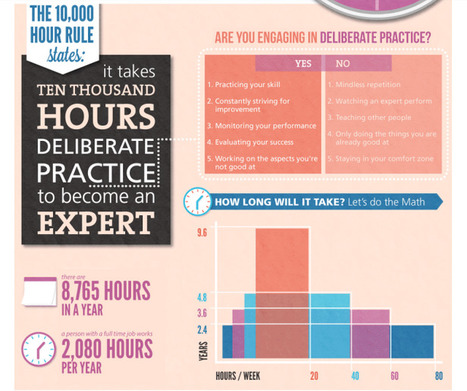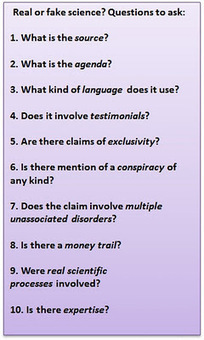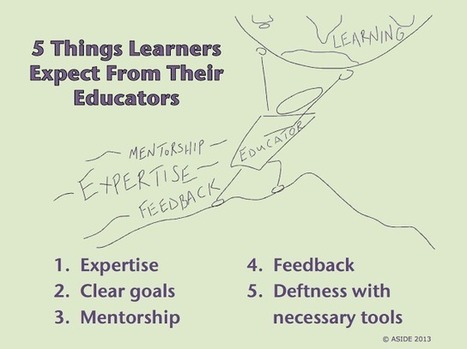But how many hours is "enough" to achieve expertise status? One take on the subject we (and many others) found interesting was Malcolm Gladwell's in the book Outliers where he popularized the theory that 10,000 hours of dedicated practice in a given field or area of expertise allows a person to become truly "expert".
Research and publish the best content.
Get Started for FREE
Sign up with Facebook Sign up with X
I don't have a Facebook or a X account
Already have an account: Login
Tech tools that assist all students to be independent learners & teachers to become better teachers
Curated by
Beth Dichter
 Your new post is loading... Your new post is loading...
 Your new post is loading... Your new post is loading...
|
|












What does it take to become an expert in a field? This infographic explores this concept, providing a look based on Malcolm Gladwell's book as well as a section called "7 steps to cheat the rule."
We know that our students are often looking for the quick fix. They cram for a test, and days later the information is often not recalled quickly. This infographic shows that time and effort are key.